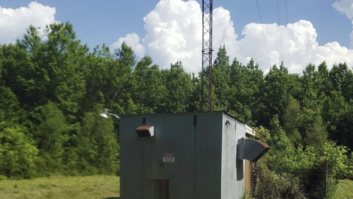FCC Modifies Radio Move-In Policies
Mar 1, 2011 1:00 AM, By Lee G. Petro
The FCC recently modified its procedures to evaluate requests for new and community of license modifications for AM and FM stations in an attempt to slow the perceived flood of radio services moving from rural into urbanized areas. Over the years, the FCC developed a set of priorities to allocate FM allotments and AM radio assignments to satisfy the requirement in Section 307(b) of the Communications Act that such services are distributed in a “fair, efficient and equitable” manner.
The first and second priorities are meant to ensure that a particular community or area receives either its first or second full-time radio service. Next, the Commission’s third priority is the provision of a first radio service assigned to a particular community. The final priority is a catch-all provision that gives a preference to the proposal that promises the greatest service.
Since all but the most remote areas in the country already receive at least two radio services, the FCC’s review of proposals has focused on the provision of the first radio station to a particular community. This becomes an issue where the community is located immediately adjacent to an urban area, and the proposed service area would cover most of the urban community, raising a concern that the proposal is intended to serve the urban area, rather than the proposed community.
In response to this concern, and the perceived impact on rural radio services, the FCC modified its policies, and created a rebuttable preference against granting such proposals. First, a proposal that specifies a community located within an urbanized area would not be granted Priority 3 preference. In addition, a proposal that specified a community outside an urbanized area, but would provide coverage to 50 percent or more of the urbanized area also would not be granted the Priority 3 preference. Finally, a proposal specifying a community outside an urbanized area, but could be modified through the subsequent submission of a minor change application (and thus avoiding a more-thorough review) would not be granted a Priority 3 preference.
However, the FCC did provide that the presumption could be rebutted, and gave guidance as to how a proponent could still qualify for a Priority 3 preference. Specifically, the proponent must demonstrate that the community was truly independent of the urbanized area, that the community has a specific need for an outlet for local expression, and that the proposed facility would be used to satisfy that specific need.
Tucked in
To make these showings, the FCC will continue to permit proponents to use the well-established Tuck factors. The FCC has been applying the Tuck factors since 1988 to determine if a community has a need for a radio station independent of the larger community. The three-part Tuck analysis looks at specific indicia to substantiate the claim that the community in question was separate and distinct from the surrounding urban area.
While authorizing the continued use of the Tuck factors, the FCC did mandate the tighter scrutiny in reviewing the laundry list of information submitted by the proponent. The FCC will now require actual evidence in support of the local need, including statements from residents attesting to the separate and distinct nature of the community from that of the surrounding urban area, information relating to the growth the community, and any geographic or cultural separations between the community in question and the urban area. However, the FCC will not approve any change that would create a loss of the only over-the-air service to an area, or that would leave just one over-the-air service.
As noted above, these modifications to the FCC’s rules and policies are intended to limit the migration of radio services into urban areas. Only time will tell whether these changes lead to the intended result, or whether such migration efforts merely will be delayed.
Dateline
May 1, May 15: Radio stations located in the District of Columbia, Maryland, Virginia, and West Virginia continuing to run License Renewal Pre-Filing Announcements.
June 1: All Radio stations located in the District of Columbia, Maryland, Virginia, and West Virginia file License Renewal application and EEO Program Report. Non-commercial radio stations also file Biennial Ownership Report (FCC 323-E).
June 1: Radio stations located in the District of Columbia, Maryland, Virginia, and West Virginia run License Renewal Post-Filing Announcements on June 1, June 15, July 1, July 15, Aug. 1, and Aug. 15, 2011.
June 1: Radio stations located in North Carolina and South Carolina run License Renewal Pre-Filing Announcements on June 1, June 16, July 1, and July 15, 2011.
Petro is a member of Fletcher, Heald & Hildreth, PLC, Arlington, VA. E-mail: [email protected].











